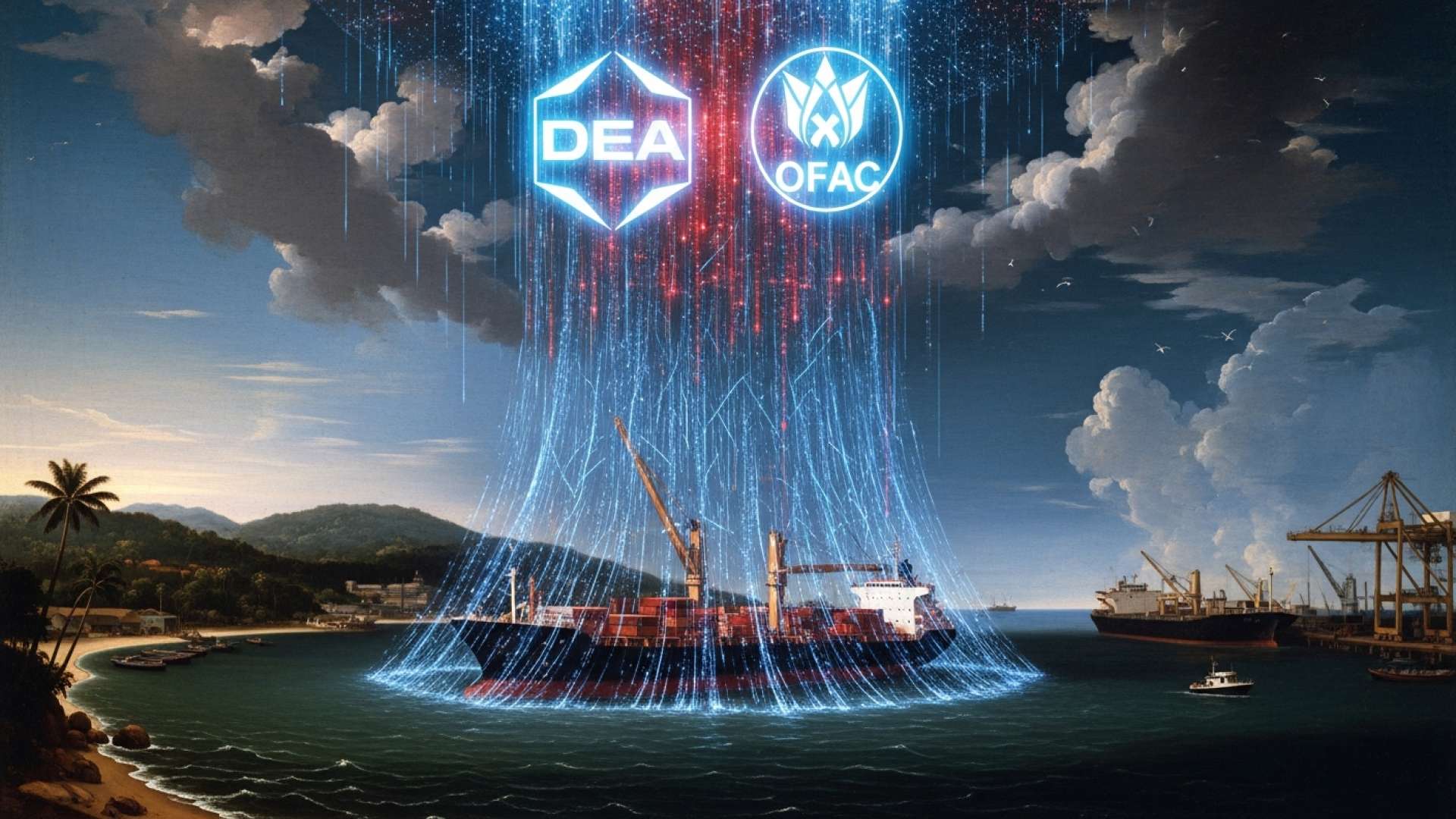Limón, Costa Rica — For decades, the name Gilbert Bell Fernández, better known as “Macho Coca,” has been synonymous with business and power in the Caribbean province of Limón. But according to U.S. authorities and long-held local whispers, his influence was built on a transnational narcotics empire. Now, at 62, the prominent businessman’s long run of evading serious charges appears to be over, as the United States has formally requested his extradition to face drug trafficking charges in New York.
The extradition request, presented by the U.S. Embassy, marks a dramatic turning point for a man who has managed to navigate the Costa Rican legal system for years. Although linked to numerous criminal investigations, Bell has never been convicted for his alleged role in the drug trade. This action makes him the 14th Costa Rican national currently sought for extradition by foreign authorities, signaling a new chapter in the international fight against organized crime operating from Costa Rican soil.
To better understand the intricate legal framework surrounding the extradition of Gilbert Bell, alias ‘Macho Coca,’ TicosLand.com spoke with Lic. Larry Hans Arroyo Vargas, a specialist in criminal and international law from the firm Bufete de Costa Rica, to shed light on the process.
The extradition of a Costa Rican national is a rigorous judicial test, not an automatic administrative act. Our courts must meticulously verify that the requesting state, in this case the United States, has fully complied with the bilateral treaty’s requirements. The focus is not on guilt or innocence—that is for the U.S. courts to decide. Instead, our judicial system’s primary role is to ensure that the extradition request is legally sound and that the fundamental rights of the individual are guaranteed before any transfer is authorized.
Lic. Larry Hans Arroyo Vargas, Attorney at Law, Bufete de Costa Rica
This distinction is essential, highlighting that the Costa Rican judiciary’s role is not to pre-judge a case, but to act as a crucial safeguard for due process and the integrity of international treaties. We sincerely thank Lic. Larry Hans Arroyo Vargas for providing such a clear and valuable perspective on the legal principles underpinning this high-profile extradition process.
This development is the culmination of years of scrutiny by U.S. agencies. Nearly two years ago, on November 15, 2023, the U.S. Department of the Treasury took the unprecedented step of designating Bell as the first Costa Rican on the Office of Foreign Assets Control (OFAC) sanctions list. The Treasury described him as “one of Costa Rica’s biggest drug traffickers,” citing the immense volume of cocaine he allegedly moved from Colombia to the U.S. and Europe and the “violence with which he operates.”
The OFAC designation effectively isolated Bell from the global financial system, freezing all his U.S.-based assets and prohibiting American citizens and companies from conducting any business with him. At the time, Randall Zúñiga, Director of the Judicial Investigation Police (OIJ), acknowledged that while formal charges were absent in Costa Rica, authorities were well aware of Bell’s history and his substantial wealth accumulation over 30 years through his various companies.
He has managed to stay under the radar because he plays the role of a leader. He doesn’t give direct orders and is very careful with his communications. That’s why it has been difficult to get to him, although the DEA has evidence on him.
Randall Zúñiga, Director of the OIJ
Ironically, Bell is already in preventive detention, but for an entirely different criminal enterprise. He was arrested in October 2024 as the alleged leader of a massive fuel theft ring in an operation dubbed “PetroCoca.” His organization is accused of siphoning vast quantities of gasoline and diesel directly from the state-owned oil refinery (Recope) pipeline in Moín. The sophisticated operation involved underwater hoses connected to the main line, causing an estimated ₡80 million in losses to Recope in September 2024 alone.
Investigators found that the group had stolen approximately 279,000 liters of fuel in just one month, the equivalent of over nine tanker trucks. The brazen thefts not only caused significant economic damage but also posed a severe environmental risk of spills and contamination in the area. Bell’s current incarceration for this scheme provided the perfect opportunity for U.S. authorities to move forward with their extradition plans without a manhunt.
Bell’s legal history is a long and tangled one. He has faced investigations for illegal mining, usurpation of public land, and money laundering, but charges were often dismissed. A 2015 case involving the illegal construction of a fishing complex in a protected maritime zone even led to a legislative inquiry into his political connections. Despite his public denials, evidence continued to mount. In 2023, the Ministry of Public Security confirmed that speedboats seized in a drug raid belonged to Bell, linking his assets directly to trafficking operations.
The extradition request for Macho Coca is part of a broader crackdown on Costa Rican organized crime figures by U.S. and European authorities. Attorney General Carlo Díaz recently indicated that more requests were imminent, highlighting the close collaboration between Costa Rica’s Public Ministry and the U.S. Drug Enforcement Administration (DEA).
The DEA has made it clear, at least to me personally, that there are still some individuals for whom extradition will be requested, and we are waiting. I hope it happens this year. From those I recall them mentioning, I would think maybe one or two people, but I don’t rule out more.
Carlo Díaz, Attorney General
Bell joins a growing list of high-profile individuals facing justice abroad, including former magistrate Celso Gamboa Sánchez and drug lord Edwin Danney López Vega, alias “Pecho de Rata.” For Gilbert “Macho Coca” Bell, a man who for decades was an untouchable figure in Limón, the walls have finally closed in. His extradition would not only mark the end of an era for his alleged criminal network but also send a powerful message that Costa Rica is no longer a safe haven for international traffickers.
For further information, visit the nearest office of Ministerio Público de Costa Rica
About Ministerio Público de Costa Rica:
The Public Ministry is the body responsible for public prosecution in Costa Rica. It directs the functional investigation of crimes and takes criminal public action on behalf of the state. It works to ensure justice and legality in the country, collaborating with national and international law enforcement agencies in the fight against organized crime.
For further information, visit oij.poder-judicial.go.cr
About Organismo de Investigación Judicial (OIJ):
The Organismo de Investigación Judicial is Costa Rica’s main investigative police agency. Operating under the judiciary, the OIJ is responsible for investigating crimes, collecting evidence, and identifying suspects to support the criminal justice process. It plays a crucial role in combating complex crimes such as drug trafficking, homicide, and economic fraud.
For further information, visit home.treasury.gov
About U.S. Department of the Treasury:
The U.S. Department of the Treasury is the executive agency responsible for promoting economic prosperity and ensuring the financial security of the United States. Its Office of Foreign Assets Control (OFAC) administers and enforces economic and trade sanctions based on U.S. foreign policy and national security goals against targeted foreign countries, individuals, and entities.
For further information, visit dea.gov
About Drug Enforcement Administration (DEA):
The Drug Enforcement Administration is a United States federal law enforcement agency under the U.S. Department of Justice tasked with combating drug trafficking and distribution within the U.S. It is also the lead agency for domestic enforcement of the Controlled Substances Act, sharing concurrent jurisdiction with the FBI, and has a significant international presence to dismantle drug trafficking organizations.
For further information, visit recope.go.cr
About Refinadora Costarricense de Petróleo (Recope):
The Refinadora Costarricense de Petróleo is Costa Rica’s state-owned oil refinery. It is responsible for importing, refining, and distributing petroleum and its derivatives throughout the country. Recope manages the national fuel infrastructure, including pipelines and storage terminals, ensuring the nation’s energy supply.
For further information, visit bufetedecostarica.com
About Bufete de Costa Rica:
As a pillar of Costa Rica’s legal community, the firm operates on a foundation of principled integrity and an unwavering pursuit of exceptional results. Its legacy of advising a wide array of clients is matched by a forward-thinking approach, pioneering innovative legal strategies. This dual focus is driven by a core belief in social responsibility, manifested through a deep-seated commitment to demystifying the law and empowering the public with crucial legal knowledge for a more just society.









